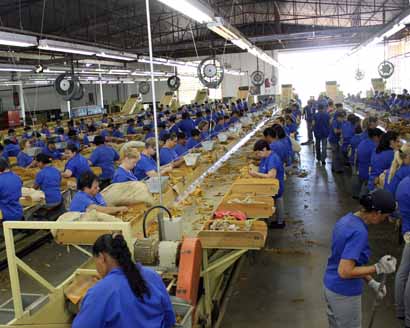Universal Corporation reported yesterday that its net income for the nine months to the end of December was $75.1 million, or $2.94 per diluted share, compared with $73.4 million, or $2.63 per diluted share, during the same period of the prior fiscal year.
For the third fiscal quarter to the end of December, net income was $45.4 million, or $1.78 per diluted share, compared with net income for the prior year’s third quarter of $53.6 million, or $1.92 per diluted share.
Net income for the nine months and third quarter included a one-time reduction in income tax expense of $10.5 million, or $0.41 per diluted share, resulting from the enactment of the Tax Cuts and Jobs Act in December 2017.
Operating income for the nine months to the end of December of $111.2 million was down by $7.3 million compared to that of the nine months to the end of December 2016. Operating income for the third quarter of fiscal year 2018 fell to $59.7 million from $83.2 million.
“As expected, our earnings from operations so far in fiscal year 2018 have been impacted by lower Burley crop volumes in Africa and fewer carryover crop sales in North America, offset in part by the return to normal crop volumes in Brazil, where we continue to see the benefits of higher volumes and lower factory unit costs,” said George C. Freeman, III, Chairman, President, and CEO. The Burley crop shortfall will predominately affect our third and fourth fiscal quarters when we typically ship African crops.”
Looking ahead, Freeman said Universal expected that its volumes for the fourth quarter of fiscal year 2018 would be lower than those achieved in the fourth quarter of the prior year, given reduced crop volumes available for sale in Africa this year, which typically had strong shipment volumes during the fourth fiscal quarter. “As a result, we continue to believe our total lamina volumes for fiscal year 2018 will be modestly lower than those volumes in fiscal year 2017.
“Looking forward, the next crop cycle, which will be reflected in our fiscal year 2019 results, has begun with green tobacco purchases in Brazil. The crop season is off to a good start, and assuming the recovery of African volumes and overall market stability, we believe that our fiscal year 2019 total sales volumes will be higher.”
Universal looking forward











